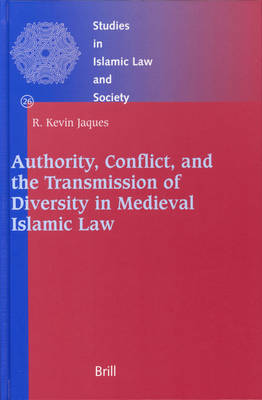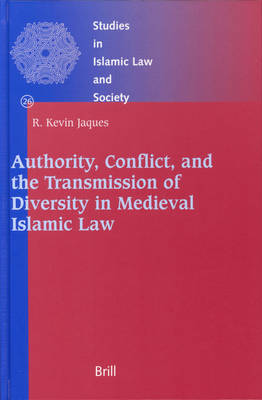
- Afhalen na 1 uur in een winkel met voorraad
- Gratis thuislevering in België vanaf € 30
- Ruim aanbod met 7 miljoen producten
- Afhalen na 1 uur in een winkel met voorraad
- Gratis thuislevering in België vanaf € 30
- Ruim aanbod met 7 miljoen producten
Zoeken
Authority, Conflict, and the Transmission of Diversity in Medieval Islamic Law
Kevin Jaques
€ 268,45
+ 536 punten
Omschrijving
This publication examines how a medieval Syrian Shāfiʿī jurist, Ibn Qāḍī Shuhbah (d. 851/1448), depicted the formation, decline, and the sources for the revival of Islamic law based on his Ṭabaqāt al-fuqahāʾ al-shāfiʿīyah (The Generations of the Shāfiʿī Jurists).
Specificaties
Betrokkenen
- Auteur(s):
- Uitgeverij:
Inhoud
- Aantal bladzijden:
- 320
- Taal:
- Engels
- Reeks:
- Reeksnummer:
- nr. 26
Eigenschappen
- Productcode (EAN):
- 9789004147454
- Verschijningsdatum:
- 28/02/2006
- Uitvoering:
- Hardcover
- Formaat:
- Genaaid
- Afmetingen:
- 165 mm x 241 mm
- Gewicht:
- 721 g

Alleen bij Standaard Boekhandel
+ 536 punten op je klantenkaart van Standaard Boekhandel
Beoordelingen
We publiceren alleen reviews die voldoen aan de voorwaarden voor reviews. Bekijk onze voorwaarden voor reviews.








